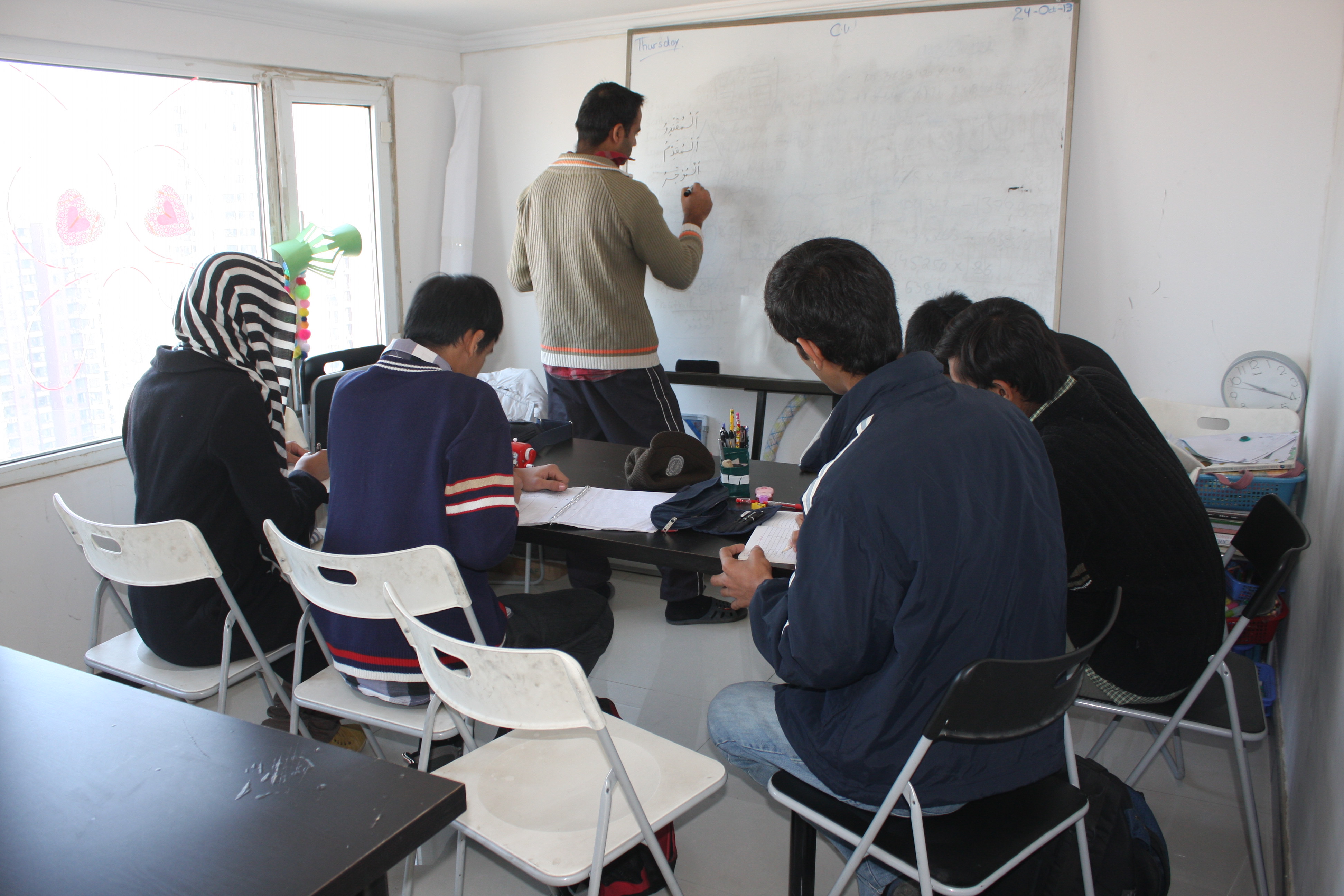Chinese schools offer primary education for urban refugees
Chinese schools offer primary education for urban refugees

SANHE, China, November 22 (UNHCR) - It's an unusual institute of "higher" learning, perched 26 floors above the city of Sanhe in Hebei province, China. As the teacher writes on the white board, his six students scribble intently in their notebooks. Aged from eight years to their late teens, they are unlikely classmates in this sunny attic far from home.
The students are refugees from the Ahmadi community, a religious minority in Pakistan. Four mornings a week they attend informal lessons in the rented apartment of one of the refugee families. Two adult refugees volunteer as teachers on subjects ranging from Urdu to English and Mathematics. On weekends, they get a break when Chinese and Korean students visit and offer Chinese language lessons.
The desire to learn is strong, but until recently, these informal lessons were the only education the refugees could get.
In a welcome development last November, the Chinese government announced that refugee children in five provinces could attend public schools at the primary level under the same conditions as local children. Since then, UNHCR has been negotiating with schools at the local level to accept refugee students.
Sammy*, 13, is one of the lucky ones. But it wasn't always the case. Born in the Pakistani city of Lahore, he faced discrimination for his religious beliefs. "My teacher created problems without any reason. He punished me and deducted marks," he recalled. "Kids wouldn't play with us, they would hurt us."
In 2010, in the wake of an attack on Lahore's Ahmadi mosques and threats against the community, Sammy fled to China with his mother and three siblings. They filed an asylum claim with UNHCR's office in Beijing and were recognized as refugees.
Today the family lives in Sanhe city close to three other Ahmadi refugee families.
The community is close-knit and well organized, running classes in the mornings and playing sport in the afternoons to pass time until long-term solutions can be found for their plight.
They are proud of Sammy's admission to Chinese school, and encourage him to persist through teething problems.
At 13, Sammy is one of the oldest students in his Grade Three class, where the average age is eight. His favourite class is English, but he finds the level too simple. The rest of the classes are taught in Chinese, which he speaks and understands to a limited degree, but cannot read or write. "My classmates are nice but we don't talk much. I sit by myself for eight hours every day. It's very lonely," he said.
"This is the first time the school has accepted a foreign student," noted Li Beibei, UNHCR's community services assistant. "I know it's hard to communicate now, but try to practise and you will improve. Chinese is difficult but if you start young, you will remember many things. It will be useful for your future life."
His teacher Zafar* adds that if he wants to achieve his dream to be a scientist, he will need formal education and school certificates.
There is a lot riding on Sammy's slim shoulders as the community looks to him to set a good example for the younger boys. Zafar's family recently moved here from Beijing and he is hoping his own two sons will be able to join Sammy in school soon. If they are eventually admitted, they will join the handful of refugee students who are currently enrolled in primary schools in China.
There are some 500 urban refugees and asylum-seekers in mainland China as well as 350,000 Vietnamese refugees who arrived in the late 1970s and are now successfully integrated into Chinese society.
*Names changed for protection reasons.
By Vivian Tan in Hebei province, China








